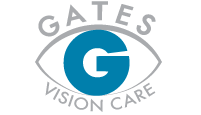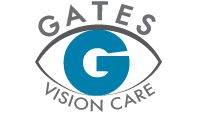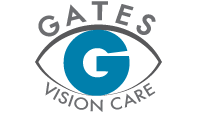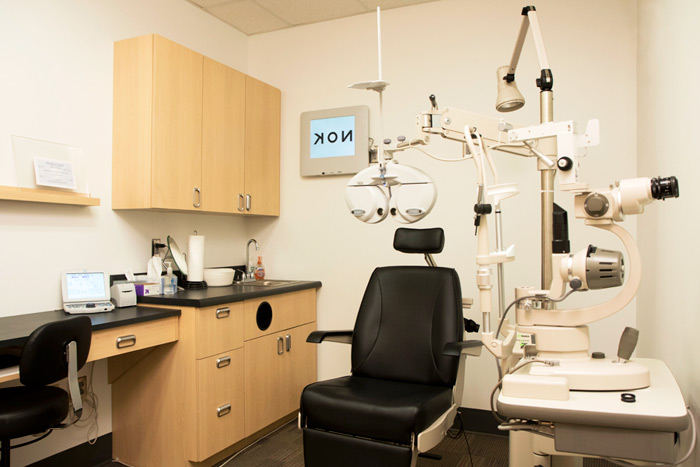
Dr. Benjamin Gates of Gates Vision Care serves Virginia families by providing comprehensive eye care to patients of all ages. In addition to providing examinations for eyeglasses and contact lenses, Gates Vision Care also treats a range of conditions such as glaucoma, the diabetic eye, dry eye, and macular degeneration.
Comprehensive Eye Exams
Regardless of your age or physical health, it is important to have regular eye exams with Dr. Benjamin Gates, whether you are near-sighted, far-sighted, or even if you think you have perfect vision.
During a comprehensive eye exam, your eye doctor will not only determine your prescription for eyeglasses or contact lenses, but will also check your eyes for common eye diseases, assess how your eyes work together as a team, and evaluate your eyes as an indicator of your overall health.
A comprehensive eye exam by Gates Vision Care in Richmond includes a number of tests and procedures to examine and evaluate the health of your eyes and the quality of your vision. These tests range from simple ones, like having you read an eye chart, to complex tests, such as using a high-powered lens to examine the health of the tissues inside of your eyes and having a photograph taken of the inside of your eye.
Eyecare experts recommend you have a complete eye exam every one to two years, depending on your age, risk factors, and physical condition.
Treatment for Dry Eyes
Dry eyes result from the chronic lack of lubrication and moisture on the surface of the eye, which can cause minor irritations, an inability to wear contact lenses, and an increased risk of corneal inflammation and eye infections.
Dry eye syndrome is a common condition, especially in women over age 40 and people who use computers for prolonged amounts of time. Gates Vision Care specializes in the care of Dry Eyes and Dr. Benjamin Gates has many treatment options are available.
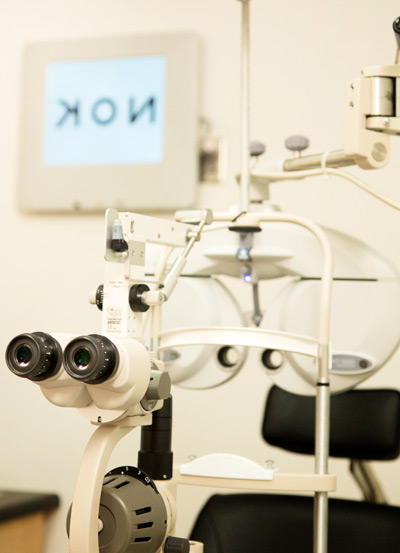
Signs and Symptoms of Dry Eyes
One of the most common symptoms of dry eyes is excessive tearing. While tearing may seem to be the opposite of dryness, excessive dryness works to over stimulate production of the watery component of your eyes’ tears. If your eyes are tearing, there are fewer tears in the eyes and the lack of lubrication causes irritation.
Persistent dryness, scratchiness, redness and a burning sensation on your eyes are other common symptoms of dry eye syndrome. Some people with dry eyes also experience a “foreign body sensation” – the feeling that something is in the eye. These symptoms alone may be enough for eye doctor Benjamin Gates to diagnose dry eye syndrome. Sometimes, he may want to measure the amount of tears in your eyes. A thin strip of filter paper placed at the edge of the eye, called a Schirmer test, is one way of measuring this.
Emergencies, Pink/Red Eyes & Foreign Body Removal
Red, Pink or Sore Eyes? We are ready to look after ALL of your eye care needs. In addition to the services you already rely on us for such as routine eye exams and contact lenses, come see Dr. Gates at Gates Vision Care first for the following issues:
- Sore, red, or itchy eyes
- Treatment of “pink eye” and other bacterial infections
- Removal of foreign bodies from the eye (such as wood or metal)
- Treatment of eye allergies or burns
- Emergency eye care
- This is convenient and cost effective for your whole family and you can be sure you are receiving the attention of an eye care specialist.
What to Expect During Your Eye Exam
Annual eye exams are essential for protecting your vision and health. Before the actual exam we will have you fill out a form asking a few questions about your vision history. If you currently wear contacts or glasses, it is a good idea to bring them to your appointment.
During your comprehensive eye exam by our board certified Optometrist, a series of tests are performed to assess your vision and the overall health of your eyes. The entire process takes anywhere from twenty minutes to over an hour, depending on the procedures that must be done to fully assess your vision. Here are some of the tests that you will likely encounter:
- Visual Acuity Test – Most people are familiar with the Snellen letter chart, which is used to check the sharpness of your vision. Your optometrist will have you read letters of varying sizes from the chart to determine how well you can see them from across the room. To test your near vision, a smaller, hand-held chart is used. At Gates Vision Care, we have a state-of-the-art high definition LED screen to test visual acuities.
- Cover Test – This simple test is used to see how well your eyes work together. Dr. Gates will have you focus on a small object, then alternately cover each eye.
- Color Blindness Test – Usually performed during your initial exam, this test will rule out color blindness. Although color blindness can be hereditary, the test can help your eye doctor rule out certain eye health problems.
- Auto-Refraction Test – During this test, you will be asked to look at an object in a machine. The machine will then take some measurements of your eye that will provide Dr. Gates with a “rough estimate” of your prescription.
- Refraction Test – During this procedure Dr. Gates will ask you which lenses are clearer as different ones are placed in front of each eye. Your answers will help him efine the lens power and ultimately determine your final eyeglass prescription.
- Non-Contact Tonometry – This procedure is commonly known as the “puff test”. A small amount of air is directed at the patient’s eyes in order to calculate the pressures inside the eyes. High eye pressures can be associated with glaucoma.
- Optomap Retinal Exam – Early signs of disease can be present in the periphery of your retina and remain undetected for a long time when using traditional methods. The optomap ultra-widefield retinal image is a unique technology that captures more than 80% of your retina in a single image while traditional imaging methods typically only show 15% of your retina at one time.
- Goldmann Applanation Tonometry – An alternate to non-contact tonometry, this procedure allows Dr. Gates to check the pressures inside your eyes. High eye pressures can be associated with glaucoma. Before this test, Dr. Gates will put an eye drop in each eye, and then determine the pressure using a small tonometer.
- FDT Visual Field Screening – This test uses frequency doubling technology to check the patient’s peripheral vision. Peripheral vision loss can be associated with many conditions, including serious conditions such as glaucoma and brain tumors.
- Slit-Lamp Examination – The slit lamp is a microscope that enables your optometrist to look closely at both the external and internal structures of your eyes. Dr. Gates will have you place your chin on the chin rest, then shine the lamp’s light into your eye. This highly magnified view will reveal signs of infection or disease.
Aside from these procedures, Optometrist Dr. Benjamin Gates may recommend that more specialized tests be performed. If you live in or around Richmond and you have any questions regarding your eye exam, please do not hesitate to contact us.
